So you’re an innovative entrepreneur who’s excited to start your business. You’ve done your market research, got your business plan set, and perfected your product. Congrats, you’re ready to launch! Well, almost ready. Тo create the right buzz – you need a pre-launch marketing plan.
Starting a business is a challenging, overwhelming, and brave endeavor. There are many dots to connect, and your job is never actually done. There are always things to test, iterate and test again, which is especially true when it comes to marketing. You always have to be on top of things, keep up with trends, try to pioneer new tactics, discover new partners and clients, etc.
While marketing never sleeps, you can make it a little less stressful by developing a strong pre-launch strategy. This essentially means developing a plan to position and promote your business and products to boost brand awareness and visibility and establish your brand presence. It’s crucial for any start-up as it can help ensure the growth of your business while setting it apart from competitors.
In this article, we’ll be sharing with you the ultimate pre-launch marketing checklist for your start-up. We’ll go over the key strategies you should adopt to successfully create anticipation and excitement before your launch date.
So, without further ado, let’s get to it.
1. Create a Pre-Launch Landing Page
You need to start your business with a growth mindset in place and the best place to begin is with a pre-launch landing page. This type of page is an essential part of any marketing campaign, as it allows you to build hype and kick-start your lead generation tactics.
Whether you’re planning to allow customers to pre-order your product or you’re offering rewards for referring users, your pre-launch landing page has a few important goals to achieve:
- Collect contact data of prospects who want to know when you’ll be open for business.
- Collect analytics data about how users arrived at the page, how long they spent there and what actions they took.
- Create a buzz by highlighting your unique value proposition.
- Boost SEO by generating inbound and outbound links between channels and platforms.
Because this landing page is the start of your pre-launch strategy, it’s really important that you host it on your own site. Third-party sites can go down or your account can become blocked. So as a general rule of marketing whatever you advertise it’s better that you own and control 100% of it.
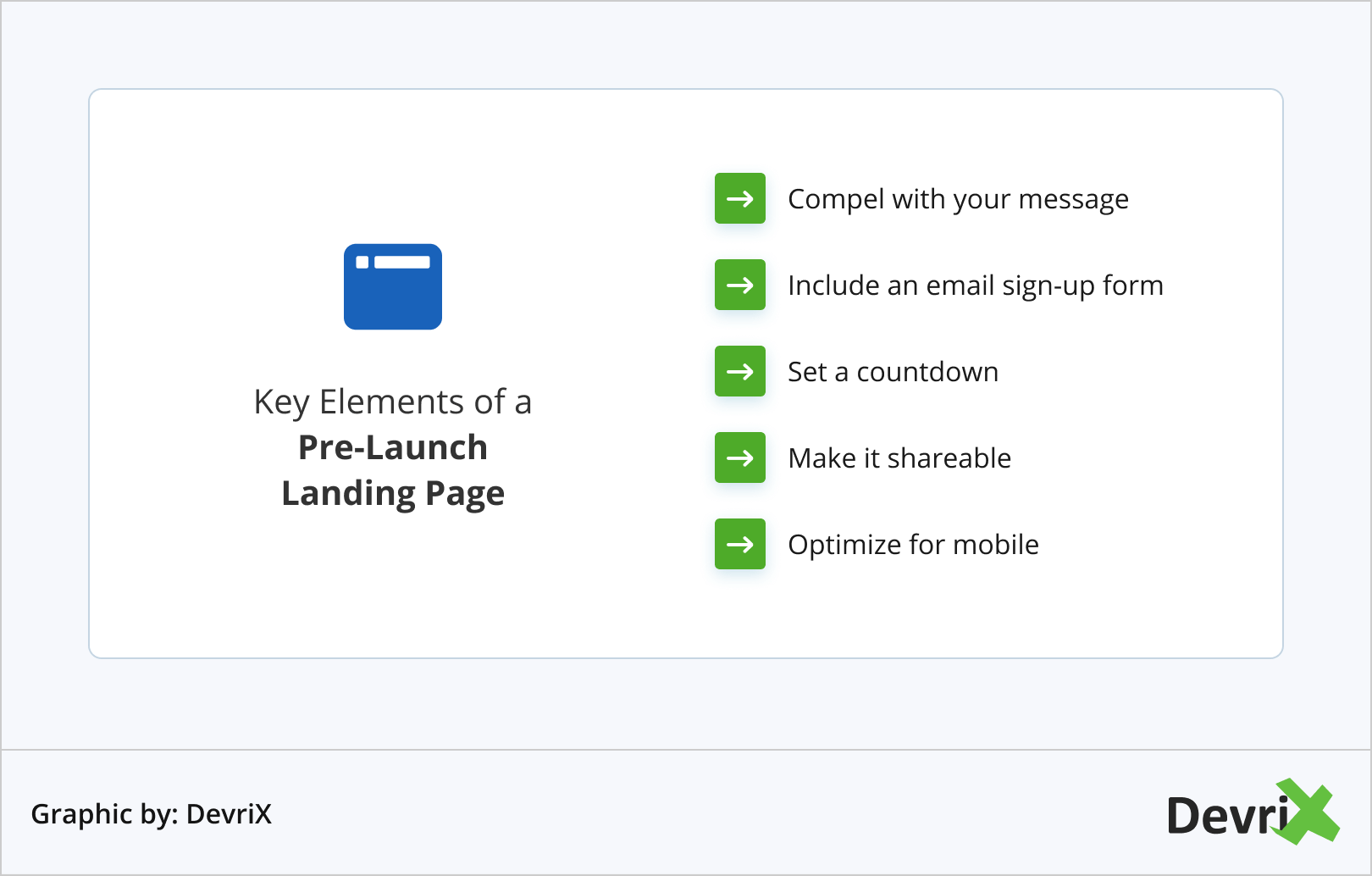
You can set up a pre-launch landing page quite easily. If your site is built on WordPress, there are plenty of themes and plugins that can help you design one. You can include a countdown timer as well as any media you would like: images, videos and graphics, a contact form and more.
Read also: How To Build a Converting Landing Page for Your Product?
2. Prepare a PR Kit
A PR kit, also known as press or media kit, is a collection of promotional materials hosted on your website and intended to help publishers and journalists, when promoting your business. It contains resources and information about your business such as company background, team bios, product factsheets, brand logos and branding materials which anyone who wants to promote your venture and products can use.
A media kit communicates that you’re not shy about being in the spotlight and that you know how to take control and ownership of your brand’s image. With good press, you can validate your brand and what prospects hear through word of month.
You need to remember, however, that having a press kit doesn’t guarantee press for your start-up. It only makes it easier to provide the right information when networking or reaching out to influencers, publishers, industry leaders, etc. Not only does it look professional, but it lessens the work journalists have to do upfront so they can be more receptive to your pitch.
3. Gain Visibility on Social Media
Social media is one of the best tools for creating a buzz around your start-up. It allows you to tap into your creativity, creates excitement, and begin building relationships with future customers.
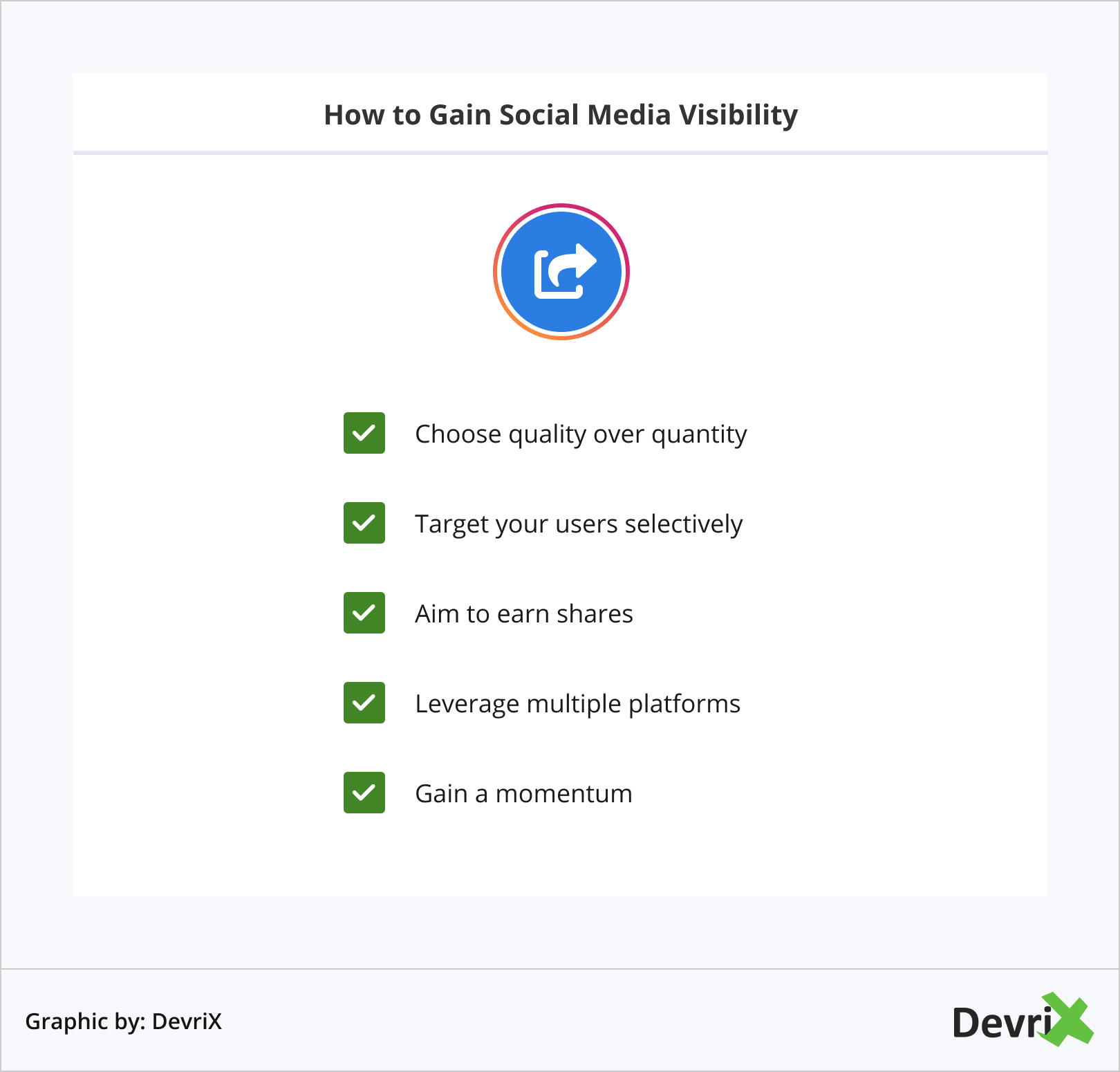
There are various techniques and strategies you can use, here are a few of them:
- Create a hashtag.
- Tease the audience with promotional deals.
- Tell the story of how you brought your idea into reality.
- Introduce your team.
- Give a sneak peek of the inner workings of your company.
- Team up with influencers and thought leaders.
- Host a giveaway.
- Author video teasers.
- Response to top industry news.
This type of hype marketing will help you attract new customers, improve your SEO and build your brand presence.
4. Collaborate with Influencers in Your Niche
Engaging with industry experts and influences is very beneficial for your brand. According to DMI statistics, 49% depend on recommendations from influencers before making their purchase, thus making influencer marketing one of the fastest-growing techniques for customer acquisition.

For this reason, an effective pre-launch marketing strategy involves reaching out to bloggers, journalists, and publications in your niche. This could mean arranging an interview with your CEO, appearing on a podcast, speaking at an event, arranging for a blogger to review your product, and so on.
If you’re not sure how to choose which influencers to collaborate with, consolidate the following tips:
- Pick fans. Search within your current fans and pick one with a good following that really loves your product/service.
- Look at their engagement. Follower count and likes can be faked. You want to collaborate with a person who has an active and engaged audience.
- Reward-based on performance. When you pay per post you can end up wasting your money due to a lack of creativity and enough effort from the influencer.
People influence people, so by leveraging influencer marketing with your well-articulated overall pre-launch marketing strategy, you can take your start-up on the road to success.
5. Draft an Editorial Calendar
When marketing your new business you generally have to create huge amounts of content for various platforms, which is why you need an editorial calendar to help you out.

The editorial process is a complex one for any business. It’s more than just generating content ideas. In fact, it’s a way to establish marketing objectives, develop a strategy, and carefully prepare your content ahead of time. Done right you’ll be able to generate traffic, improve your SEO, increase social shares, generate more leads and drive up conversions.
There are a few ways in which drafting an editorial calendar can support the launch of your start-up:
- It will help you set your marketing and business objectives, and plan your content based on them.
- It will enable you to do thorough research on keywords and topics.
- It can help you plan the content for your campaigns.
- You’ll be able to have a consistent posting schedule.
With an editorial calendar in place, you’ll be able to streamline your workflow, thus helping you make the most out of your content marketing.
6. Set Up Your Analytics Account
Always planning is great but you need to know if your efforts are fruitful, which means you need to set up your Google Analytics account. It will allow you to track and measure the performance of your website so you can understand how quickly you can meet your goals and improve your brand’s presence.
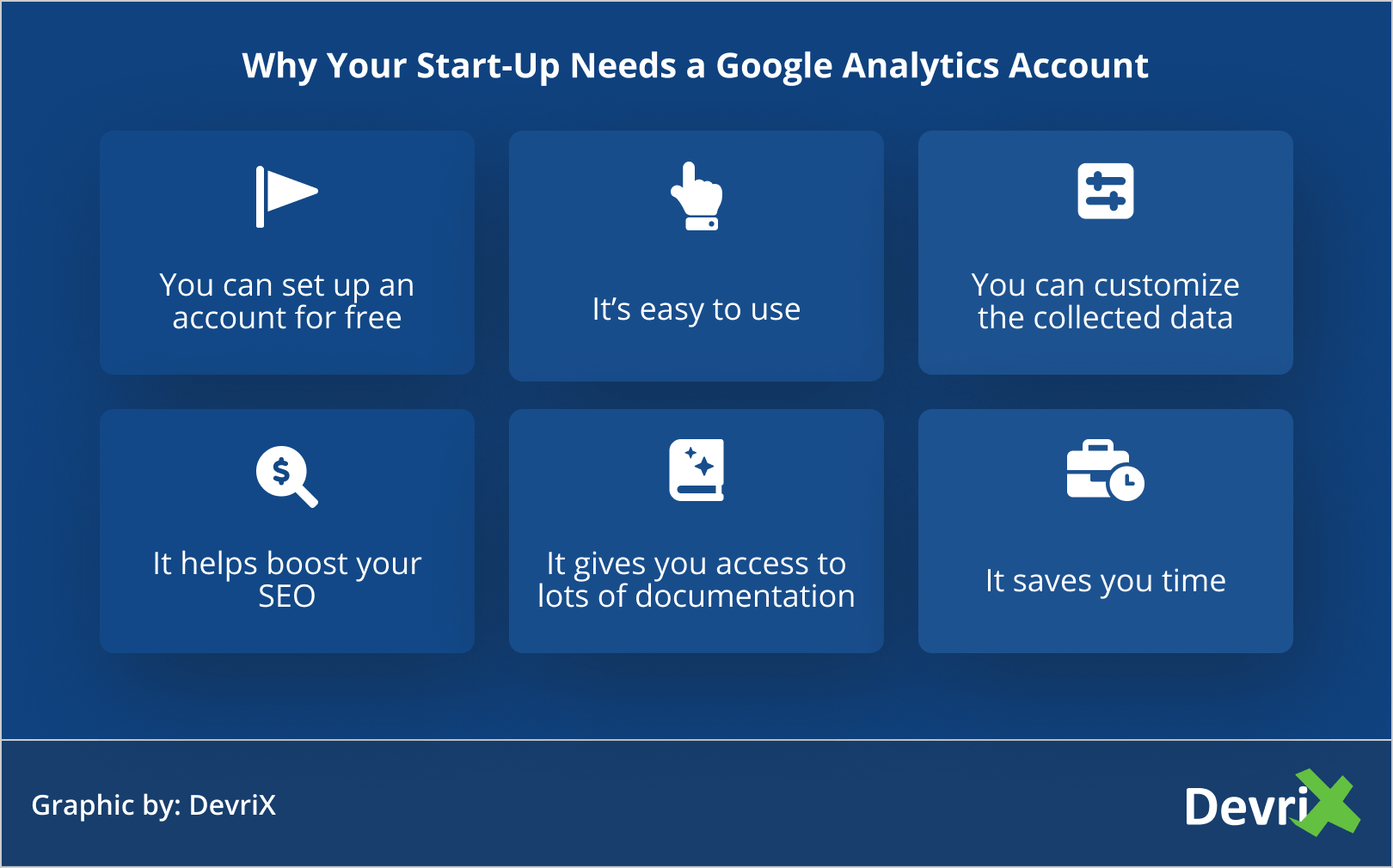
Google Analytics is one of the most popular tools for digital marketers. It provides indispensable information about your website’s visitors, so you can understand user behavior and their journey better.
There is plenty of data that you can get from Google Analytics, some of which includes:
- The overall traffic to your website.
- Where your traffic came from – another website, search, email, etc.
- Traffic from individual pages.
- Where your leads came from.
- How many of the leads converted.
- User demographic data.
- What device visitors used and which browser.
Whether you’re launching an e-commerce store, a SaaS business, or a web development company, setting up a Google Analytics account is essential. It will help you acquire valuable insights that can be highly beneficial when shaping your business and marketing strategy.
7. Get Started with Email Marketing
Email marketing is a great tool for keeping your audience engaged and building a relationship with them. It’s one of the most cost-effective ways to promote your brand,
connect with users, share news, send a message, tell a story, etc.
With email, you’re contacting those who really want to hear from you. Moreover, when a lead opens your email, you have their full attention, without the need to outsmart any algorithms like with social media.
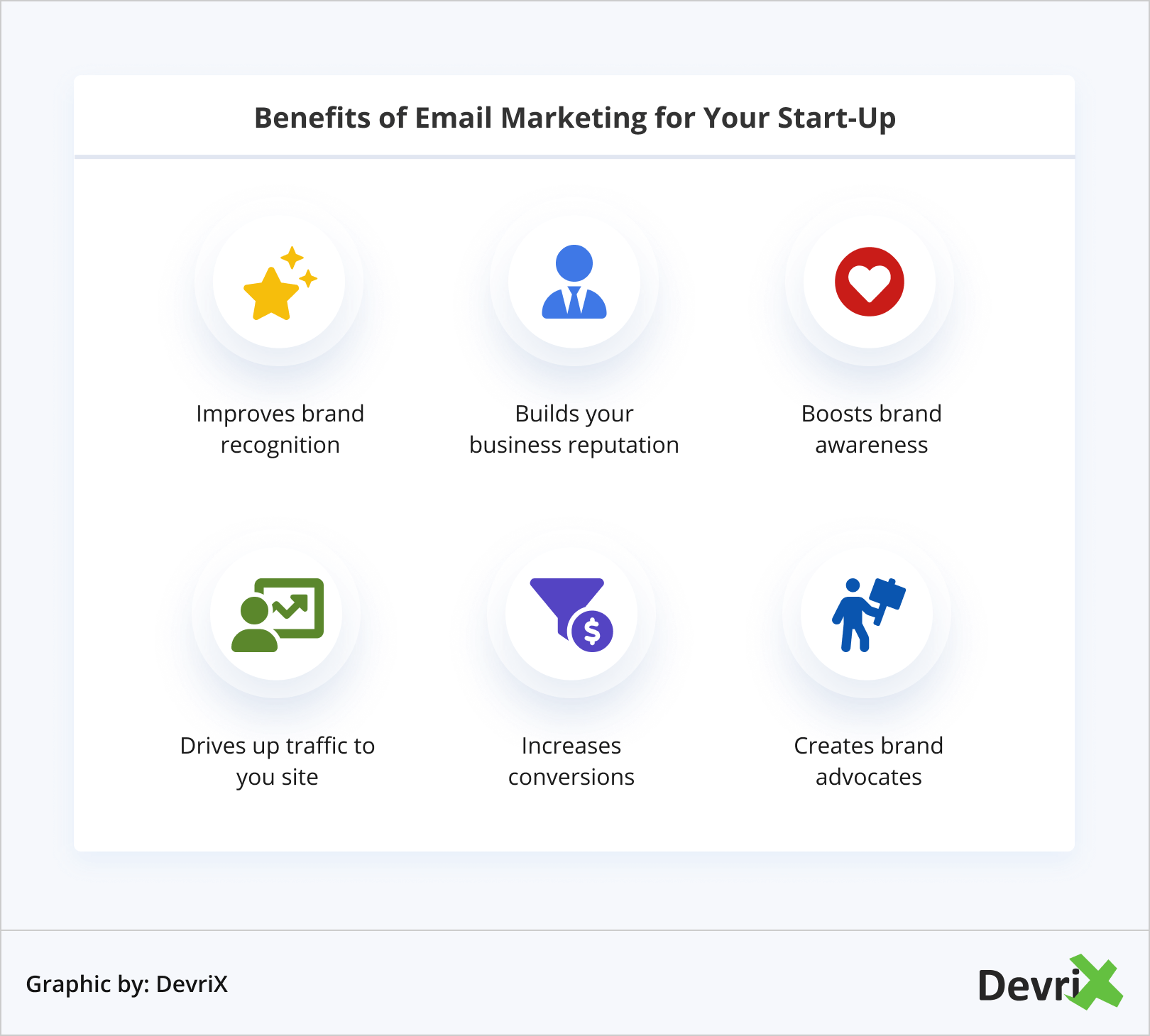
However, to fully benefit from this, you need to build a subscriber list. Get started by adding a form to your pre-launch landing page and to your website. Make sure to include strong CTAs so your visitors can easily subscribe to your emails. Once they’ve subscribed you need to:
- Have an interest-evoking subject line and preview text.
- Create engaging and valuable content with which to update them about your products, services, and content.
- Optimize your emails for mobile.
- Schedule your email frequency
- Use a professional-looking email address (e.g. [email protected]) and avoid spammy words and phrases.
To learn what kind of information might interest your audience the most, you can ask them this through your form. Details like age, location, occupation, interests, etc. can help you create more personalized and relevant content. This in turn can allow you to build up a rapport with users and strengthen your relationship with them.
Read also: How to Promote a Website After Launch in Five Steps
Wrapping Up
Let’s recap your pre-launch must-haves:
- A Pre-Launch Landing Page
- A PR Kit
- Social Media Visibility
- Collaborations with Influencers
- An Editorial Calendar
- An Analytics Account
- Email Marketing Set-Up
We understand that launching a new venture can be overwhelming for any entrepreneur and that getting a strong start is very important for future success especially when it comes to marketing strategies for startups. Therefore, we’ve created this seven-point pre-launch marketing checklist to help you out and ensure that you’re well prepared to welcome clients to your business.
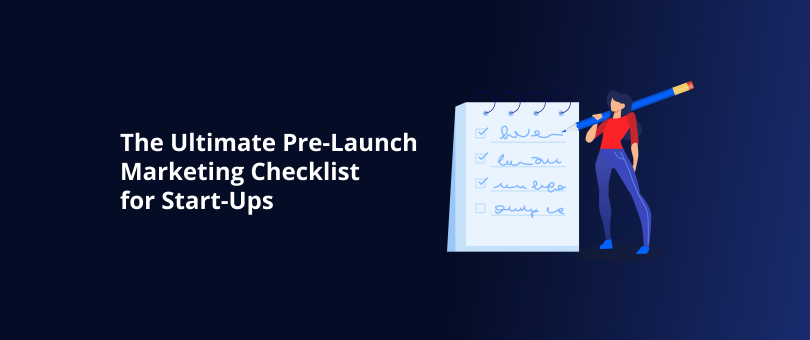
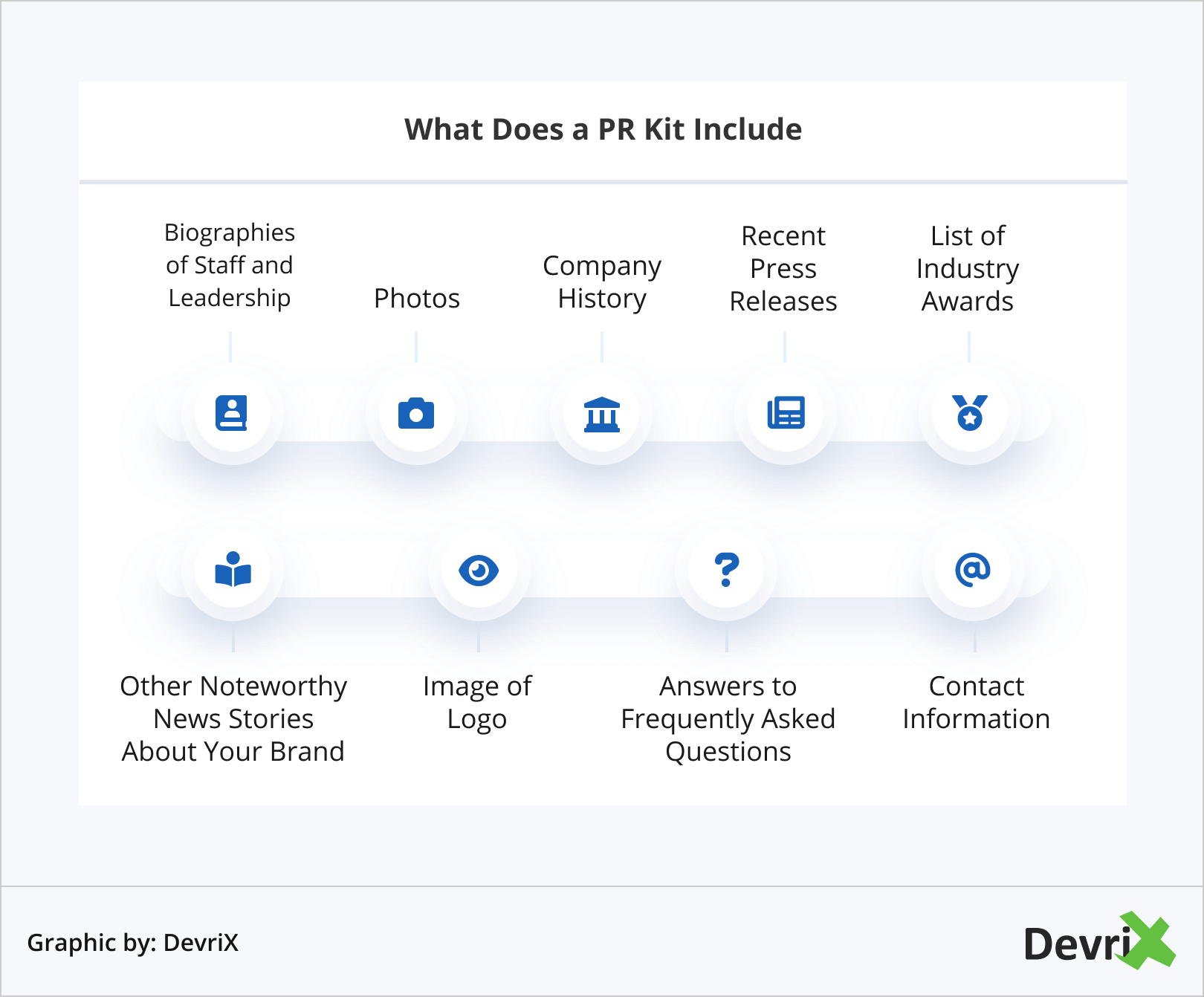

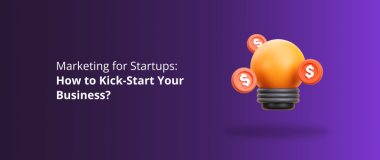

![Influencer Marketing Statistics Every Business Should Know [Infographic]](https://devrix.com/wp-content/uploads/2019/10/Influencer-Marketing-Statistics-Every-Business-Should-Know-Infographic@2x-380x160.png)